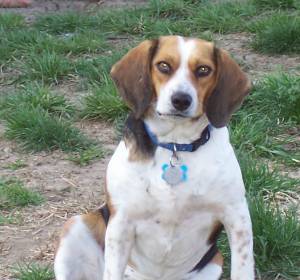
Dr. Brian Hare, an associate professor at Duke University, was an undergrad student studying animal psychology at Emory University when he asked himself that same question that every dog companion since dogs moved in with humans has asked—what is my dog thinking? But unlike most of us who only wonder about the dogs around us, Hare wondered about how all dogs think. After getting his advanced degrees, founding the Duke Canine Cognition Center and working with colleagues to put together a network of over 1000 pet families willing to bring their dogs in for assessment, Dr. Hare developed Dognition, a fee-based online service that helps you understand your dog’s cognitive style.
When someone signs up for the program (costs ranges from a one-time fee of $39 to an extended toolkit and membership at $147) they get a set of questions and games to reveal their dog or dogs’ abilities. The games require a partner and 15-30 minutes and, oh the dog. The exercises are designed to reveal five cognitive dimensions of how various dogs think. The results are compared to other dogs in the database and Dognition produces a report or profile. As the website notes, “It’s about discovering which skills your own dog relies on to navigate the world — the ones your dog excels at as well as the challenges. Knowing your dog’s “cognitive style” can help shed light on where your best friend is coming from — and the new places your relationship can go.”
Hare and advisors to the program stress that Dognition is not a canine SAT or intelligence test assigning IQ numbers. It’s supposed to be fun, not competitive. Although the Dognition participants are not involved in a carefully controlled scientific study, Hare hopes to garner understanding on important questions about behavior, breeding and genetics. Hare hopes to have thousands of dogs join the database.
The original program and exercises were originally designed to find ways to identify dogs who would be good at things like bomb detection. There is a high dropout rate due to dogs not working out in the training programs
